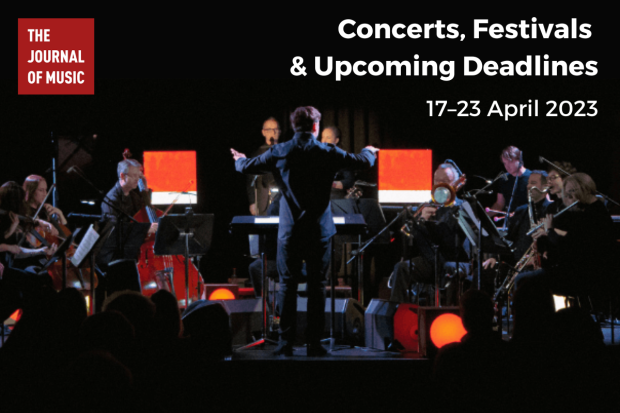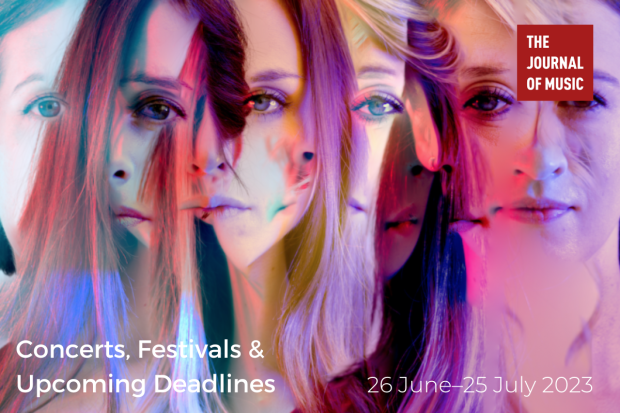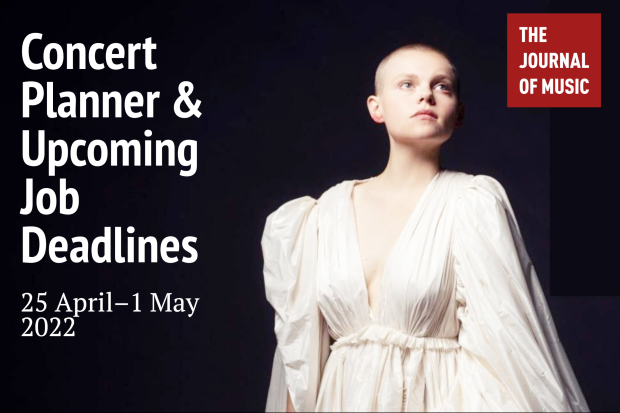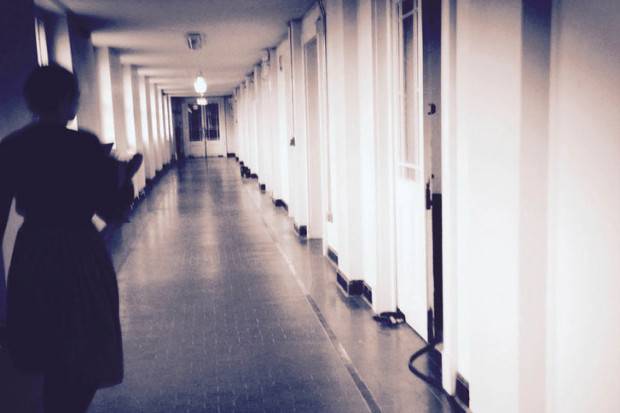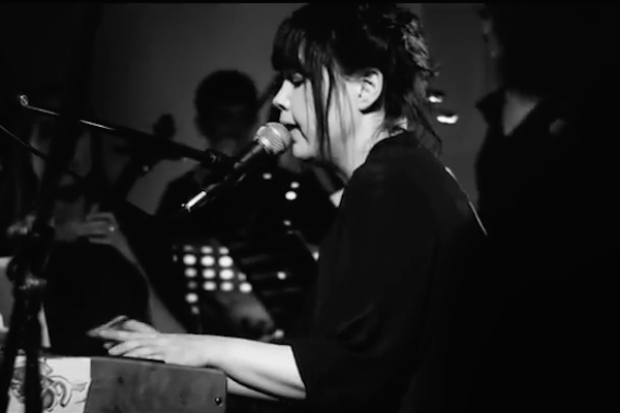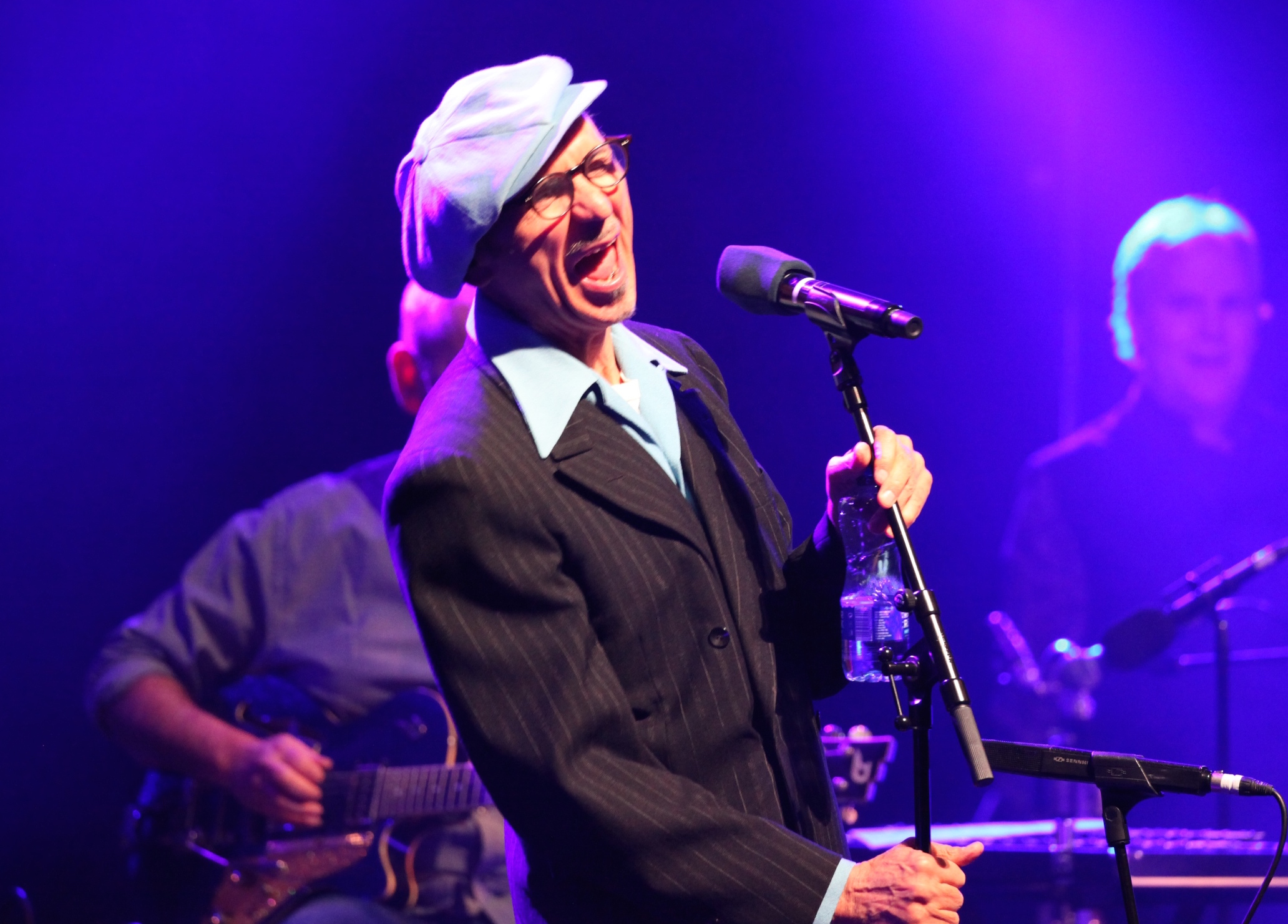
Kevin Rowland performing at ‘Imagining Home: England’ at the National Concert Hall
Commemorating 1916 By Not Thinking About It
On Tuesday 29 March, in the National Concert Hall, Kevin Rowland – best known to this day for his work with Dexy’s Midnight Runners – sang ‘The Curragh of Kildare’, not in the style of a group of friends in a pub or with the raucous energy of the Pogues at full steam, but tenderly, almost wistfully, as if love or fulfilment or homecoming was not an attainable state but something to be conjured up, and perhaps shared, through song. Rowland’s lifelong search for a personal and musical identity has entailed, at various periods, provocative statements on the Troubles, abrupt changes in style and personal philosophy, confrontations with band members, a difficult relationship with the press, and periods of withdrawal. I wouldn’t presume to know what he was feeling on this particular evening, but it was easy to imagine that the invitation to perform in the National Concert Hall was a kind of homecoming for him – a recognition at the very least of the Irish dimension to the music of one second-generation musical figure. Ideally, this meaningful experience would have taken its place within a meaningful programme (devoted perhaps to second-generation experience) and this in turn would take its place in a full week’s programme with an identifiable focus. As the Imagining Home series at the NCH (28 March to 3 April) was presented as part of the Ireland 2016 centenary programme, it would be reasonable to expect that the individual events would in some fashion reflect on or connect meaningfully with 1916. This might be asking too much, but isn’t asking for too much what revolutions and rebellions are often about?
Let’s take a quick look at the line-up for the Imagining Home: England concert: Kevin Rowland & Sean Read, Cáit O’Riordan (second-generation, more or less); Martin Carthy (veteran English folk figure); Andy Irvine, London-born; Cathal Coughlan (innovative Cork performer who long ago moved to London); Camille O’Sullivan, Lisa O’Neill, Declan O’Rourke (Irish performers who have spent some time in London and may spend more); Paul Brady (once wrote a song about working in England and, as a ballad singer, cannot but connect with the English ballad heritage); John Sheahan (no particular connection but everybody loves him)… It is difficult to see how any coherent theme might be explored through this disparate collection of musicians. England, or imagining England, amounted to little more than a pretext for pleasantly blending musicians that the concert’s MC John Kelly admires with (as in many other concerts during the week) some elements of the Ceiliúradh package assembled for President Higgins’s visit to London in 2014. It would be only a slight exaggeration to say that this is the official music of the current presidency.
Ceiliúradh was about projecting a certain image of Ireland within the context of British/Irish relations after Queen Elizabeth’s first state visit to the Republic. It had to be pretended that we were celebrating reconciliation between the two countries, even though relations between the two governments had in fact been unproblematic, indeed warm, for decades. What was really being celebrated, though it could not be stated too explicitly, was that, following a sufficiently long period of relative calm, it was again OK for everybody to forget about Northern Ireland: the issue need no longer block the public demonstration of the true state of affairs. This was all the more the case as the intellectually incoherent response of a large section of the South’s political and cultural elite to the Troubles had been to see engagement with history as inherently dangerous and to think that, if Republican atrocities and ideology were wrong, British perspectives on Irish history must be right. This is why, in government-sponsored commemorative events in Ireland, active interchange between Irish historians and intellectuals and their British equivalents have been avoided. Historically informed British politicians or ex-politicians such as William Hague have not been invited here to reflect on the actions, ideologies, errors and successes of their predecessors of a century ago. Instead, the Irish rethink their history; the British provide minor diplomatic figures to certify how conciliatory and unthreatening the process is.
Harmlessness
Though Imagining Home took place in Ireland, it seems to have been arranged with a view to demonstrating our harmlessness to an imaginary outsider looking in, or with a view to providing models of international best practice in order to increase our harmlessness. Irish culture was to be displayed as unconflicted, unchallenging, market-friendly, tourism-friendly and charming – as entirely harmless, in other words. Hence, an American-themed evening on 28 March (of which I caught only the radio broadcast) of largely unreflective pleasantry. We were treated mostly to music that carried little of the heft and pain of emigrant experience, as in Mick Moloney’s rather cuddlesome heritage package or in the energetically resurrected kitsch of another age. It was symptomatic that the American evening concluded – for no discernible reason except that this had gone down well at Ceiliúradh – with ‘The Parting Glass’.
If the English night was more artistically coherent, it was probably owing to the continuity of style provided by the high-quality house band, excellently directed by Kate St John. It was anchored somewhere between classic cabaret and late Tom Waits, but with the versatility to adjust to almost any individual style and the good grace to let certain performers, especially those coming from traditional music, do their own thing. We could appreciate the quality of the musicians (mostly English) but nothing invited us to think about England, about Ireland in England or England in Ireland.
But there was much to enjoy or ponder in the style and theatricality of the various performers. Whatever changes have occurred in Rowland’s outlook, he has not renounced the attempt to juggle identity-searching with arbitrary sartorial styling – but it is something he carries off with aplomb. As Cathal Coughlan vigorously strode the stage, he seemed encased in both his suit and a somewhat uncommunicative singing style. Cáit O’Riordan seemed to be forcing resurrection on the raucous Pogues stage style – valiantly so perhaps, but a little incongruously too, in what was, after all, a segment of a carefully choreographed and curated evening, directed as much at the radio audience as the live audience at the NCH, with John Kelly’s script, despite its touches of humour, tilting towards reverent Lyric-ism.
In cabaret, the singer adopts a persona (effectively a mask) but pain and life experience have to leak through the wit, the knowingness and the theatricality. Thousands may disagree but it seemed to me that, once again, Camille O’Sullivan evoked cabaret style while failing to inhabit it. An uncertainty about her distance from the material and from the audience undermined the performance – even down to the excessive gratitude she showed for audience appreciation. At the beginning of the evening, too, she had tacked some pointless quirkiness onto a verse of ‘Róisín Dubh’, a powerful song that yields itself fully when the singer is entirely at its service. This is what Lisa O’Neill (looking endearingy unpackageable) achieved very impressively from beginning to end of the ‘The Foggy Dew’. The same could be said of Paul Brady’s fully committed rendition of ‘Arthur MacBride’, a song that casts no reverent glow over either the arbitrary power of the Army or Arthur’s gleeful resistance to it. The brutal ending of that song asks questions of the singer. Was there a different inflection to the last verse when compared with the original (and still wonderful) recording? Declan O’Rourke’s musical territory doesn’t greatly interest me, but he was undeniably a fully committed and engaging performer.
A lesson in artistic seriousness
The Wednesday (Imagining Home: Into Europe) and Thursday (Imagining Home: On Revolution) evenings were each part-concert, part-cultural event. The evening titled Into Europe was presided over by Fintan O’Toole – a curious choice when one considers that, as a look at his writings and career will confirm, it is to the United States and its culture that he has always been drawn. Europe is for him, apart from its playwrights, little more than a source of allegedly normal politics or of alleged ethical standards by which Ireland can be judged deficient. Its history too is played out on a grand scale that dwarfs ours. O’Toole is essentially a moralist, and the evening was in its main lines structured as a lesson in artistic seriousness for the Irish public. (He acknowledged with a wry smile how little jollity there would be.)
Beckett had been exemplary in renouncing the opportunity to take shelter in neutral Ireland during the Second World War. His experience of wartime France underlay his later and most important work. Lisa Dwan’s performance of Not I, in a performance space ill-suited to chamber Beckett, was both speedy and gripping – while also being remarkably musical, reminding me at one point of a soprano saxophone solo by Evan Parker. In one of the most imaginative touches of the evening this was followed by another solo as, from the side of the hall, Síle Denvir delivered the stark Connemara lament ‘Amhrán Mhuínse’ with total conviction. The stage was then ready for Dwan to perform Beckett’s Footfalls. As the piece was longer and very much slower than Not I, it was a mistake to present it in such a venue after the two previous perfectly pitched items. For half of the audience at least, the action and the actress’s features were so distant that it was easy to lose concentration.
After the intermission, the dramatic focus switched to Roger Casement. O’Toole did us all a service by rescuing for the stage the speech that Shaw wrote for Casement during his trial in 1916. This cast light both on Shaw’s thinking in mid-war and on Casement’s story. Owen Roe was the capable performer. In a different vein, Olwen Fouéré gave voice to Roger Casement in a monologue (a little strained on occasion in reaching for poetic effect but quite interestingly done overall) specially written by O’Toole.
The nod to Ireland’s older connections with musical Europe was out of key with O’Toole’s penitential vision of art. And were some of Field’s nocturnes orchestrated simply in order to extract more value from the presence of Barry Douglas’s Camerata Ireland? The orchestra was really needed only for Penderecki’s Threnody for the Victims of Hiroshima. The piece (played with less ferocity than would be expected on the night) seems almost designed to appeal to O’Toole. The title frames the piece in a way that encourages the public to accept dissonances and the deployment of extended techniques as expressions of trauma. However, as the title seems to have been bestowed on the piece only after several performances, whether as a response to the felt power of the work or (as some might hold) for less admirable reasons, the Threnody raises complex issues that went unaddressed.
On this European-themed evening, for whatever reason, the actress Fiona Shaw (who has done many wonderful things) offered us a section of a poem written by an American poet who moved to England as a young man. In the performance of T.S. Eliot’s The Wasteland, Shaw’s individuality of approach had become mannerism, with Eliot’s elusive momentum broken into discontinuous and self-conscious gestures. (Shaw may still be in recovery from having been conscripted by Ceiliúradh to intone ‘The Minstrel Boy’ as if every syllable of every word of this fine song belonged to a sacred text only recently recovered from the mud of Lough Gur.) A Shakespeare sonnet recited by Fouéré concluded the evening: fine in itself, it too defied programming logic.
The Dark Places
Colm Tóibin’s evening – On Revolution (31 March) – was less earnest than O’Toole’s but was another lesson in how we should commemorate 1916 by not thinking about it; instead we should listen to people from other countries engaging with their histories. The idea that one can think about Ireland in the world, and not in contrast with the world, escapes some of our public intellectuals. As it happens, the writer friends that Tóibín brought us – Ahdaf Soueif, Joseph O’Neill, Hisham Matar, Eva Hoffman and Adam Zagajewski – were excellent company. Soueif’s talk about the impact of the Egyptian upheavals on her family was quite moving, for example, while Adam Zagajewski combined dry irony with immense likeability. I am not sure whether Joseph O’Neill has sought to encourage the British public to rethink the idea of empire but, in an amiable way that took in the philosophy of Emmanuel Lévinas, he encouraged us to move away from nationalism, which he saw, rather simplistically, as being principally a matter of rejecting those who are not like us.
The Thomas Moore and a rare opportunity to hear Berlioz’s Élégie en Prose (dedicated to Robert Emmet) we probably owed to Tóibín. The approach shown in other selections by the composer Donnacha Dennehy was curiously bitty. We had excerpts from Rzewski’s The People United Will Never Be Defeated (played by pianist Michael MacHale), a few movements from Philip Glass’s third string quartet (a bizarre choice – and were the dropped movements less or more revolutionary?), and the first movement of Beethoven’s Op. 59, No 2. The main event of the evening was The Dark Places, a collaboration between Dennehy and Tóibín. The libretto presents the voices of the novelist Joseph Conrad and of Roger Casement in a kind of counterpoint: they both knew the mass murder and brutality carried out in the Congo, King Leopold’s domain, and became friends there. The Dark Places is written loosely as if in Casement’s last days, with Conrad at this stage having withdrawn to the English countryside, from where he thinks back kindly to their shared times. Tóibín presents Conrad as wanting to fully imagine the Congo and its horrors; Casement as wanting to change it.
This is a tidy and attractive concept – setting the creative artist alongside, rather than against, the activist. In creating it, however, Tóibín has sentimentalised and depoliticized the relationship between the two men. In fact, as a foreigner who had been welcomed into the heart of British literary life, Conrad was understandably grateful to his country of adoption, backed the British war effort and distanced himself from the treasonous figure who had been his friend in the Congo. The man whose intelligence Conrad had noted and enjoyed, he now described as a person of ‘pure emotion’. This is a phrase Tóibín is fond of – mental deterioration being perhaps the only explanation for how a great humanitarian could become an active Irish nationalist.
For much of The Dark Places, the Crash Ensemble was confined to providing a discreet sonic backdrop to the two singers, whose vocal lines allowed for clear enunciation of the text. Only at the end was there a hint of Dennehy’s more assertive mode. In its very respectful treatment of text, this piece belongs with That the Night Come, Dennehy’s settings of Yeats’ poems.
For anyone wondering why Casement features so prominently in two writers’ evenings in this 1916 commemorative series, the answer is quite simple. These are writers who are frequently invited to interpret Ireland for publications such as the London Review of Books. For their British audience, they tend to frame their explorations of Irish history and politics as explanations to a normative and rational culture of the curious (or irrational or history-bound) culture of the neighbouring island. Focusing on Casement allows them to occupy commemorative space that might otherwise fall into less reliable hands but also, gratifyingly, to escape the confines of this benighted island. On which note, rather than a reprise of our various themes, we may conclude.
Published on 14 May 2016
Barra Ó Séaghdha is a writer on cultural politics, literature and music.










